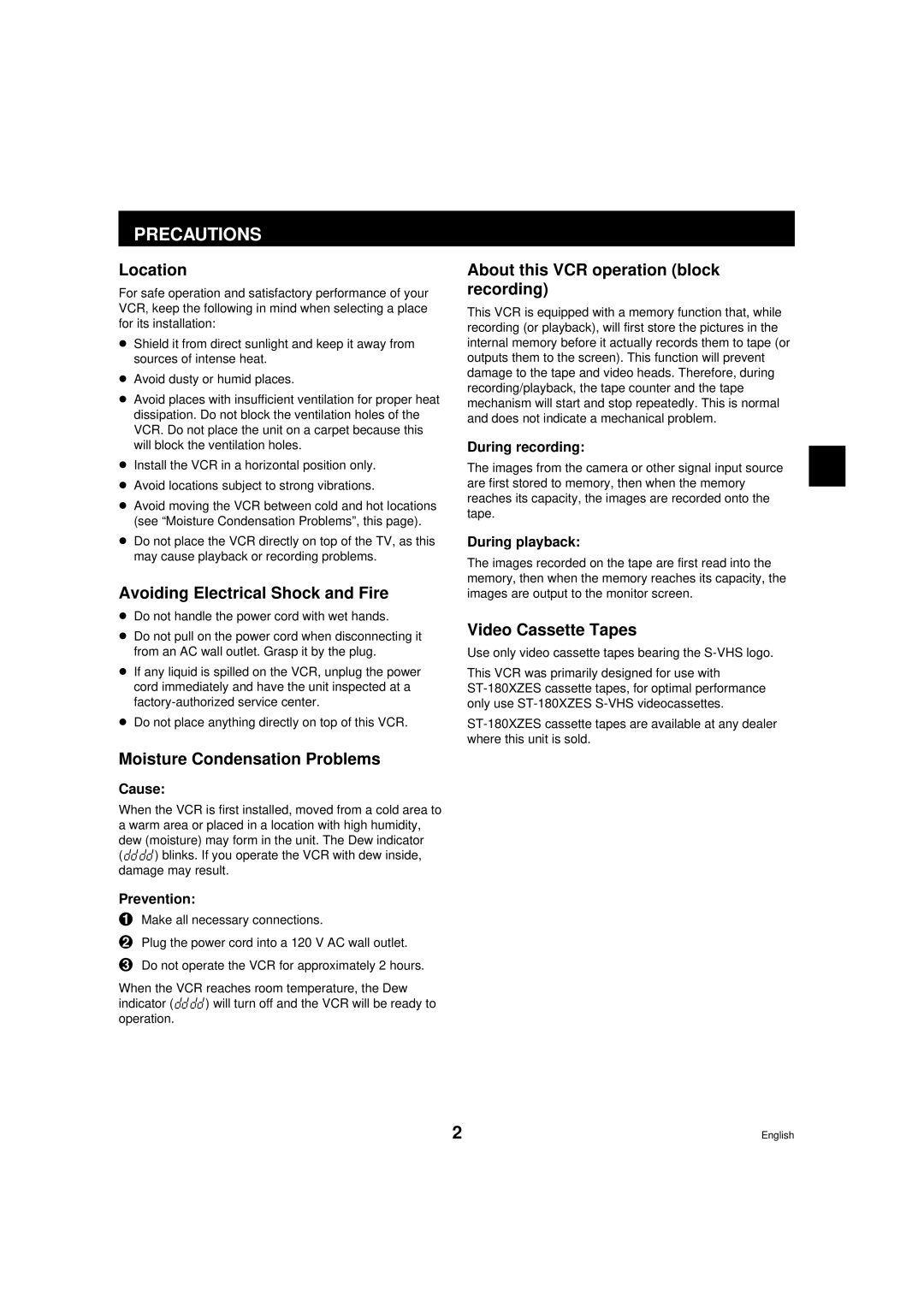
PRECAUTIONS
Location
For safe operation and satisfactory performance of your VCR, keep the following in mind when selecting a place for its installation:
œShield it from direct sunlight and keep it away from sources of intense heat.
œAvoid dusty or humid places.
œAvoid places with insufficient ventilation for proper heat dissipation. Do not block the ventilation holes of the VCR. Do not place the unit on a carpet because this will block the ventilation holes.
œInstall the VCR in a horizontal position only.
œAvoid locations subject to strong vibrations.
œAvoid moving the VCR between cold and hot locations (see “Moisture Condensation Problems”, this page).
œDo not place the VCR directly on top of the TV, as this may cause playback or recording problems.
Avoiding Electrical Shock and Fire
œDo not handle the power cord with wet hands.
œDo not pull on the power cord when disconnecting it from an AC wall outlet. Grasp it by the plug.
œIf any liquid is spilled on the VCR, unplug the power cord immediately and have the unit inspected at a
œDo not place anything directly on top of this VCR.
Moisture Condensation Problems
Cause:
When the VCR is first installed, moved from a cold area to a warm area or placed in a location with high humidity, dew (moisture) may form in the unit. The Dew indicator (4) blinks. If you operate the VCR with dew inside, damage may result.
Prevention:
1Make all necessary connections.
2Plug the power cord into a 120 V AC wall outlet.
3Do not operate the VCR for approximately 2 hours.
When the VCR reaches room temperature, the Dew indicator (4) will turn off and the VCR will be ready to operation.
About this VCR operation (block recording)
This VCR is equipped with a memory function that, while recording (or playback), will first store the pictures in the internal memory before it actually records them to tape (or outputs them to the screen). This function will prevent damage to the tape and video heads. Therefore, during recording/playback, the tape counter and the tape mechanism will start and stop repeatedly. This is normal and does not indicate a mechanical problem.
During recording:
The images from the camera or other signal input source are first stored to memory, then when the memory reaches its capacity, the images are recorded onto the tape.
During playback:
The images recorded on the tape are first read into the memory, then when the memory reaches its capacity, the images are output to the monitor screen.
Video Cassette Tapes
Use only video cassette tapes bearing the
This VCR was primarily designed for use with
2 | English |
